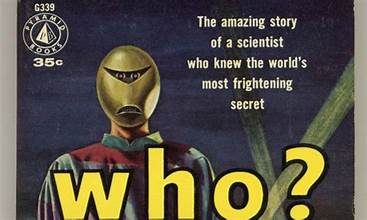
Science fiction has long been a genre that not only entertains but also inspires and shapes popular culture. Classic science fiction stories have left an indelible mark on the world of entertainment, technology, and societal values. This article delves into how these timeless tales have influenced modern pop culture, from blockbuster films and television series to technology and societal norms.
The Genesis of Science Fiction
The roots of science fiction can be traced back to the early 19th century, with works such as Mary Shelley’s “Frankenstein” and H.G. Wells’ “The War of the Worlds.” These seminal texts established the genre’s foundation, blending imaginative narratives with speculative science and philosophical questions.
Early Influences
Mary Shelley’s “Frankenstein,” often regarded as one of the first science fiction novels, explores themes of creation and responsibility. Its impact is evident in contemporary media, where the concept of artificial intelligence and bioengineering continues to provoke ethical discussions. Similarly, H.G. Wells’ “The War of the Worlds” introduced readers to the idea of extraterrestrial invasion, a theme that has become a staple in modern sci-fi.
From Page to Screen: The Cinematic Revolution
Classic science fiction stories have transitioned from literature to the silver screen, profoundly influencing modern filmmaking. Iconic films such as Stanley Kubrick’s “2001: A Space Odyssey” and Ridley Scott’s “Blade Runner” have set high standards for visual effects, storytelling, and thematic depth.
“2001: A Space Odyssey”
Stanley Kubrick’s “2001: A Space Odyssey,” released in 1968, is a landmark in cinematic history. Its exploration of human evolution, artificial intelligence, and space travel has inspired countless filmmakers and technologists. The film’s depiction of HAL 9000, an artificial intelligence, has sparked discussions about the potential risks and benefits of AI in our society.
“Blade Runner”
Ridley Scott’s “Blade Runner,” based on Philip K. Dick’s novel “Do Androids Dream of Electric Sheep?” (1968), presents a dystopian future where human-like androids challenge the nature of humanity. The film’s aesthetic and philosophical inquiries into identity and consciousness continue to influence contemporary science fiction narratives.
Technological Inspirations
Classic science fiction stories have not only influenced filmmakers but also inspired real-world technological advancements. Concepts that were once the realm of fiction are now becoming reality.
Space Exploration
The notion of space exploration, popularized by works like Arthur C. Clarke’s “Rendezvous with Rama” and Isaac Asimov’s “Foundation” series, has driven real-world space missions and technological innovations. The Apollo moon landing and ongoing Mars exploration missions reflect the aspirational spirit of these early sci-fi narratives.
Robotics and AI
The idea of robots and artificial intelligence, central to stories such as Asimov’s “Robot” series, has shaped technological development in robotics and AI. Modern advancements in robotics, including humanoid robots and AI systems, echo the imaginative scenarios envisioned by these early writers.
Societal Reflections and Critiques
Classic science fiction often serves as a mirror reflecting societal concerns and issues. These stories provide commentary on contemporary values, ethics, and potential futures.
Utopian and Dystopian Visions
Science fiction has explored both utopian and dystopian visions of the future. Works like Aldous Huxley’s “Brave New World” and George Orwell’s “1984” present cautionary tales about the potential consequences of technological and societal advancements. These narratives remain relevant as they continue to resonate with modern anxieties about surveillance, control, and social conformity.
Ethical Considerations
The ethical dilemmas posed in classic science fiction, such as those found in Asimov’s “Three Laws of Robotics,” prompt ongoing debates about the implications of emerging technologies. These discussions are crucial as society navigates the challenges of AI, genetic engineering, and other scientific advancements.
The Legacy of Classic Sci-Fi in Modern Pop Culture
The influence of classic science fiction extends beyond literature and film. It permeates various aspects of modern pop culture, including television, video games, and even fashion.
Television and Streaming Services
Television series like “The Expanse,” inspired by classic science fiction themes, showcase the genre’s continued relevance. Streaming platforms, such as Netflix and Hulu, have embraced sci-fi narratives, bringing classic themes to new audiences.
Video Games and Virtual Reality
The impact of classic science fiction is also evident in video games and virtual reality experiences. Games like “Deus Ex” and “Mass Effect” incorporate elements from classic sci-fi literature, offering immersive experiences that explore futuristic concepts and ethical dilemmas.
Fashion and Design
Fashion designers have drawn inspiration from sci-fi aesthetics, incorporating futuristic and retro elements into their collections. The influence of classic sci-fi on design is evident in clothing, accessories, and even architecture.
Conclusion
Classic science fiction stories have profoundly shaped modern pop culture, influencing everything from film and television to technology and societal values. The imaginative and thought-provoking narratives of these early works continue to inspire and challenge contemporary creators and thinkers. As we move forward, the legacy of classic science fiction will undoubtedly continue to impact and inspire future generations.












